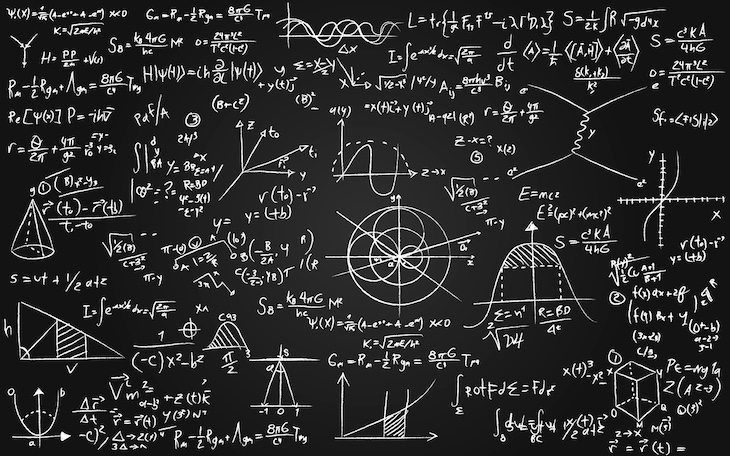The government has shocked the mathematics community by announcing that it is withdrawing £6 million in grant funding from a new Academy for Mathematical Sciences.
The impetus for creating this Academy came from a 2018 review chaired by professor Philip Bond. His review recommended how to maximize the benefits of mathematical sciences to the UK economy and to wider society. It drew on responses from a host of universities and all the learned societies in mathematics and was advised by a board of mathematical luminaries. Its number one recommendation was the creation of this new academy – which would improve links between academia, government and industry.
Investing in mathematics is one of the most cost-effective measures the government can take to boost our economy
According to estimates by Deloitte, in 2010 mathematics contributed over £208 billion to the UK economy. Annual spending on mathematics research in the period 2008-2013 was £354 million. Using this data, the Bond review suggested the cost-benefit ratio of mathematics research is one to 588. In fact, the report made a miscalculation, underestimating the value for money of mathematics by a factor of five.
Presumably the error crept in because it is hard to believe that the UK would have only spent £75 million on mathematics research in 2010. With the slip corrected, the cost-benefit ratio of mathematics is an astounding one to 2,773. In other words, for every pound spent on mathematics research, £2,700 is gained in investment.
It is reassuring to know that even the great and good of mathematics slip up in their calculations from time to time, but this in no way detracts from the central message of the report: investing in UK mathematics is one of the most cost-effective measures the government can take to boost our economy.
Nevertheless, making the most of this potential is not easy. To see the challenges, consider the experience of computing. The benefits of making computer programming a standard part of school education have been crushingly obvious since the 1980s. Yet it still possible for maths and science students to come to university without any meaningful programming experience.
With the current revolution in data science, it is similarly obvious today that all students should continue to develop mathematical skills after the age of 16. Nobody should be able to graduate with a social science degree, for example, unless they have some understanding of statistics. And no mathematician should be able to graduate without being able to explain the implications and limitations of a model in words. We also need to address the long-standing issue of women choosing not to pursue a career in mathematics, and to reverse the drop in enrolments in mathematics programmes that we have seen in recent years.
Although there are several longstanding mathematical societies in the UK, such as the Royal Statistical Society and the London Mathematical Society, they each represent specific niches. There is currently no mathematical equivalent of the Royal Society of Chemistry or the Institute of Physics to create a single coherent UK strategy across mathematical disciplines. This has resulted in mathematics being something of a second-class citizen in policymaking and in funding. In 2008-2013, physics received seven times the funding of mathematics, while delivering about a third of the economic benefit.
In the distant past engineering experienced similar problems in reaching the ear of government. This was addressed in 1976 with the founding of the Fellowship of Engineering. Its accomplishments in shaping research and education policy was recognised in 1992 when it was granted the new title of the Royal Academy of Engineering. The ambition of the Academy for Mathematical Sciences was to replicate this.
Since the Bond report in 2018 considerable work has gone into the development of the new fledgling academy. A particular focus has been to ensure that different constituencies are reached, including schools and industry. Care has been taken to develop the processes and structures needed to build consensus across the mathematical sciences. This is no mean feat. Mathematicians are by nature a contrary bunch and require a great deal of convincing before they will agree on anything. It is a considerable achievement that the current proto-academy enjoys the support of all the existing mathematical learned societies.
Given the broad support for the academy from across the mathematical community, it is extremely hard to understand Labour’s decision to withdraw funding. The academy seems to tick all their boxes. It has a strong focus on expanding access to mathematics to underrepresented groups. It is non-elitist, giving equal weight to the needs of teachers and industry as well as academia.
The government’s explanation is that, ‘substantive action rather than an additional academy represents the most effective way forward to ensure maths supports our missions.’ But these actions remain unspecified. This makes it impossible to perform a cost-benefit analysis. Besides, the costs of the academy are nugatory. With mathematical sciences employing 2.2 million people across the UK, the cost of the academy is less than £1 per job per year.
If the government has new substantive ideas for mathematics, that is great, but it needs to say what they are. The real policies we need will take years to implement. Any proposals will require careful debate to develop consensus and cross-party support. This is of course precisely the job of the new academy, and it has been working hard to achieve this. The government must understand that science strategy is a long game and that it will need expert help to build the right strategy. Otherwise, it is hard not to worry that the only reason the government is not supporting a powerful new voice for mathematics is that they don’t want to listen to it.







Comments